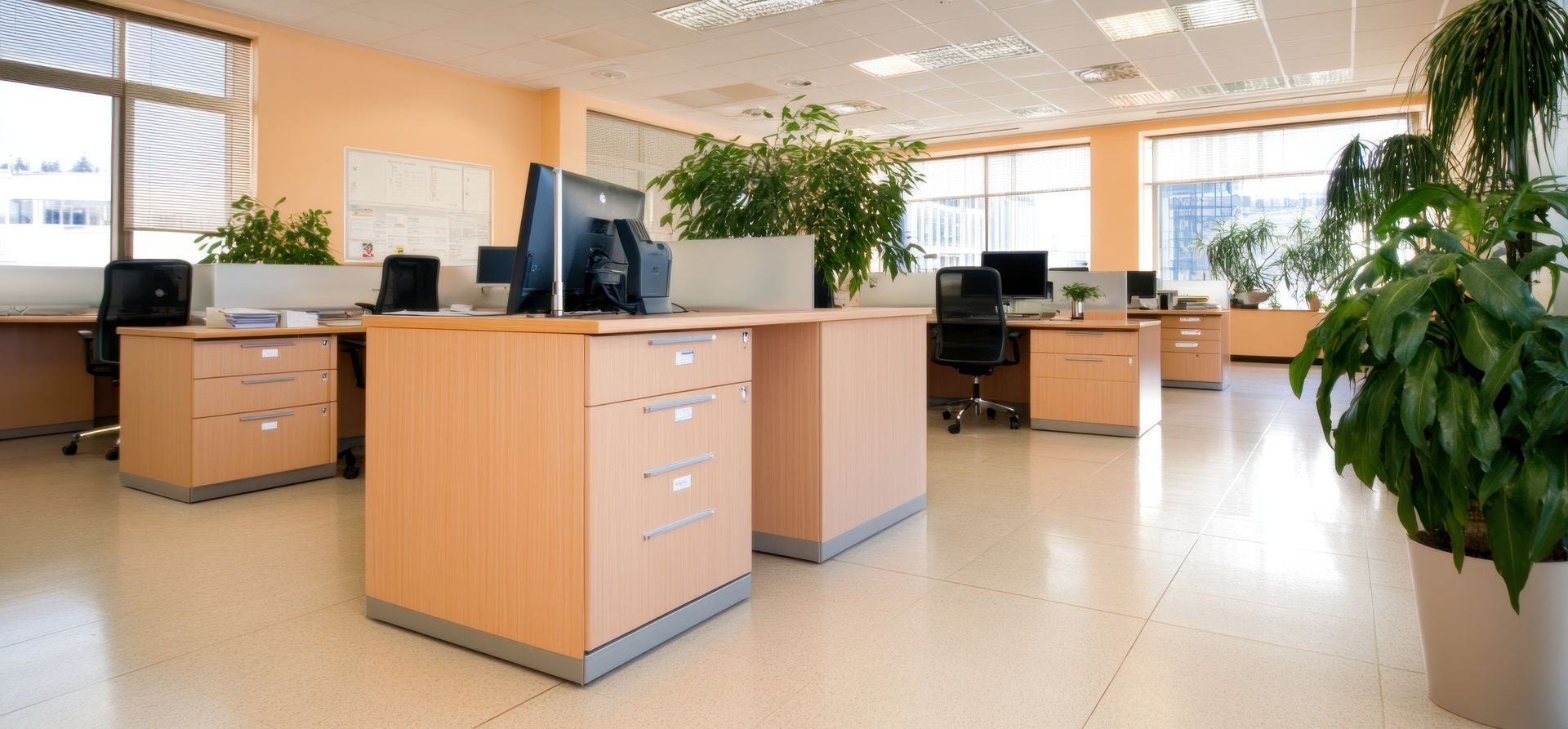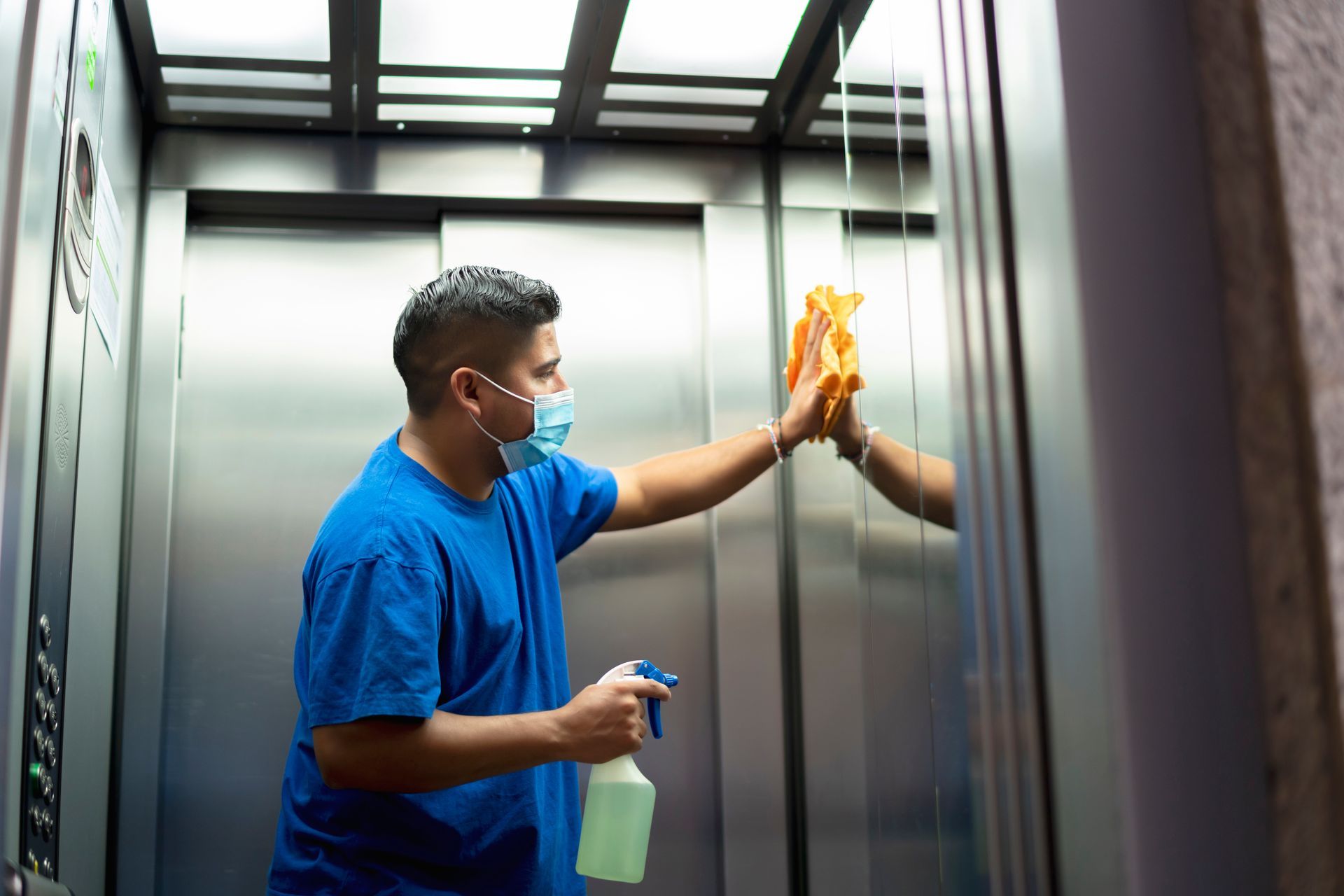The Role of Preventive Cleaning in Reducing Workplace Sick Days

Employee health and productivity go hand in hand, and few factors affect both as much as workplace cleanliness. A clean environment doesn’t just create a professional appearance. It also plays a vital role in keeping germs, allergens, and contaminants under control.
When preventive cleaning practices are put in place, businesses can reduce the spread of illness, improve employee well-being, and cut down on costly sick days.
For companies that rely on consistent performance from their workforce, preventive cleaning isn’t just a nice-to-have; it’s a smart business strategy.
Why Sick Days Add Up Quickly
Workplace illness spreads fast. A single employee who comes to work with a cold or flu can unknowingly pass germs along through shared surfaces such as doorknobs, desks, keyboards, phones, and break room appliances. Studies show that viruses can survive on surfaces for hours or even days, creating ongoing exposure risks.
The costs of these illnesses aren’t limited to healthcare expenses. Sick days lead to reduced productivity, missed deadlines, and greater workloads for other team members. When multiple employees get sick in succession, an office can experience a significant drop in efficiency. Preventive cleaning reduces these risks by breaking the chain of transmission before it spreads.
High-Touch Surfaces Require Extra Attention
Preventive cleaning begins with identifying high-touch surfaces. These areas are most likely to harbor germs because of frequent contact. These include:
- Door handles and elevator buttons
- Shared keyboards, phones, and office equipment
- Break room counters, microwaves, and refrigerator handles
- Restroom fixtures like faucets and flush handles
By implementing a routine schedule that prioritizes disinfecting these surfaces, employers can significantly reduce the number of pathogens circulating in the workplace. Regular cleaning should be paired with EPA-approved disinfectants that are effective against common viruses and bacteria.
Air Quality Matters Too
Clean surfaces are only part of the equation. Indoor air quality has a direct impact on employee health, especially during cold and flu season. Dust, mold spores, and allergens can all trigger respiratory issues and contribute to sick days.
Preventive cleaning should include vacuuming with HEPA filters, maintaining clean HVAC systems, and addressing moisture issues that can lead to mold growth. Air purification systems and regular filter changes also help reduce airborne contaminants, making the office environment healthier overall.
Restrooms and Break Rooms: Critical Zones
While every part of the workplace should be maintained, restrooms and break rooms deserve special attention. These areas are not only high-traffic but also high-risk for spreading germs. Inconsistent cleaning of restrooms can lead to unsanitary conditions that increase the likelihood of stomach bugs and other illnesses. Similarly, communal break rooms can easily spread foodborne contaminants if surfaces and appliances aren’t cleaned properly.
Preventive cleaning routines should include daily disinfecting of restroom surfaces, thorough cleaning of break room tables and counters, and regular sanitizing of coffee makers, water dispensers, and microwaves. Ensuring soap dispensers in restrooms and kitchens, as well as hand sanitizer dispensers, remain stocked at all times is also vital for minimizing the spread of illnesses throughout a workforce.
Building a Preventive Cleaning Program
The most effective way to reduce sick days is to adopt a comprehensive, preventive cleaning program. This program should go beyond spot cleaning and establish regular, detailed practices that address every part of the office environment.
Key steps include:
- Daily Disinfection:
Focused cleaning of high-touch surfaces.
- Scheduled Deep Cleaning: Carpets, upholstery, and less obvious surfaces should be addressed periodically.
- Stocked Hygiene Supplies: Keep soap dispensers, hand sanitizer stations, and other hygiene products filled to minimize illness across the workforce.
- Proper Waste Management: Emptying trash regularly reduces odors and bacteria.
- Employee Awareness: Encouraging employees to maintain clean workstations and practice hand hygiene complements professional cleaning efforts.
Preventive cleaning isn’t just about reacting to messes but proactively addressing the areas where germs are most likely to spread.
The ROI of Preventive Cleaning
Some business owners may hesitate to invest in professional cleaning services, but the return on investment is clear. Fewer sick days mean higher productivity, greater employee satisfaction, and reduced turnover. Employees are more likely to feel valued and cared for when they see their employer prioritizing a healthy workspace.
In addition, preventive cleaning contributes to a polished, professional image for clients and visitors. A clean office not only reduces illness but also reinforces the company’s commitment to professionalism and attention to detail.
Protect Your Workforce With Our Preventive Cleaning Services in the Greater Phoenix Area
At ProEthic Building Services, we specialize in preventive cleaning strategies designed to reduce workplace sick days and promote healthier environments. Our expert team uses industry-leading products and proven techniques to keep your office spotless, safe, and ready for peak performance.
Contact us at ProEthic Building Services today by calling (480) 725-8912 to learn how our preventive commercial cleaning programs can support your team’s health and help your business thrive.



